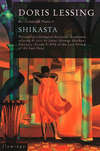Kitabı oku: «To Room Nineteen: Collected Stories Volume One», sayfa 8
The Other Woman
Rose’s mother was killed one morning crossing the street to do her shopping. Rose was fetched from work, and a young policeman, awkward with sympathy, asked questions and finally said: ‘You ought to tell your Dad, miss, he ought to know.’ It had struck him as strange that she had not suggested it, but behaved as if the responsibility for everything must of course be hers. He thought Rose was too composed to be natural. Her mouth was set and there was a strained look in her eyes. He insisted; Rose sent a message to her father; but when he came she put him straight into bed with a cup of tea. Mr Johnson was a plump, fair little man, with wisps of light hair lying over a rosy scalp, and blue, candid, trustful eyes. Then she came back to the kitchen and her manner told the policeman that she expected him to leave. From the door he said diffidently: ‘Well, I’m sorry, miss, I’m really sorry. A terrible thing – you can’t rightly blame the lorry-driver, and your mum – it wasn’t her fault, either.’ Rose turned her white, shaken face, her cold and glittering eyes towards him and said tartly: ‘Being sorry doesn’t mend broken bones.’ That last phrase seemed to take her by surprise, for she winced, her face worked in a rush of tears, and then she clenched her jaw again. ‘Them lorries,’ she said heavily, ‘them machines, they ought to be stopped, that’s what I think.’ This irrational remark encouraged the policeman: it was nearer to the tears, the emotion that he thought would be good for her. He remarked encouragingly: ‘I daresay, miss, but we couldn’t do without them, could we now?’ Rose’s face did not change. She said politely: ‘Yes?’ It was sceptical and dismissing; that monosyllable said finally: ‘You keep your opinions, I’ll keep mine.’ It examined and dismissed the whole machine age. The young policeman, still lingering over his duty, suggested: ‘Isn’t there anybody to come and sit with you? You don’t look too good, miss, and that’s a fact.’
‘There isn’t anybody,’ said Rose briefly, and added: ‘I’m all right.’ She sounded irritated, and so he left. She sat down at the table and was shocked at herself for what she had said. She thought: I ought to tell George … But she did not move. She stared vaguely around the kitchen, her mind dimly churning around several ideas. One was that her father had taken it hard, she would have her hands full with him. Another, that policemen, officials – they were all nosy parkers, knowing what was best for everybody. She found herself staring at a certain picture on the wall, and thinking: ‘Now I can take that picture down. Now she’s gone I can do what I like.’ She felt a little guilty, but almost at once she briskly rose and took the picture down. It was of a battleship in a stormy sea, and she hated it. She put it away in a cupboard. Then the white empty square on the wall troubled her, and she replaced it by a calendar with yellow roses on it. Then she made herself a cup of tea and began cooking her father’s supper, thinking: I’ll wake him up and make him eat, do him good to have a bite of something hot.
At supper her father asked: ‘Where’s George?’ Her face closed against him in irritation and she said: ‘I don’t know.’ He was surprised and shocked, and he protested: ‘But Rosie, you ought to tell him, it’s only right.’ Now, it was against this knowledge that she had been arming herself all day; but she knew that sooner or later she must tell George, and when she had finished the washing-up she took a sheet of writing-paper from the drawer of the dresser and sat down to write. She was as surprised as her father was: Why didn’t she want to tell George? Her father said, with the characteristic gentle protest: ‘But, Rosie, why don’t you give him a ring at the factory? They’d give him the message.’ Rosie made as if she had not heard. She finished the letter, found some coppers in her bag for a stamp and went out to post it. Afterwards she found herself thinking of George’s arrival with the reluctance that deserved the name of fear. She could not understand herself, and soon went to bed in order to lose herself in sleep. She dreamed of the lorry that had killed her mother; she dreamed, too, of an enormous black machine, relentlessly moving its great arms back and forth, back and forth, in a way that was menacing to Rose.
George found the letter when he returned from work the following evening. His first thought was: ‘Why couldn’t she have got killed next week, after we were married, instead of now?’ He was shocked at the cruel and selfish idea. But he and Rose had been going together now for three years, and he could not help feeling that it was cruel of fate to cloud their wedding with this terrible, senseless death. He had not liked Rose’s mother: he thought her a fussy and domineering woman; but to be killed like that, all of a sudden, in her vigorous fifties – He thought suddenly: ‘Poor little Rosie, she’ll be upset bad, and there’s her Dad, he’s just like a big baby; I’d better get to her quick.’ He was putting the letter in his pocket when it struck him: ‘Why did she write? Why didn’t she telephone to the works?’ He looked at the letter and saw that Mrs Johnson had been killed as long ago as yesterday morning. At first he was too astonished to be angry; then he was extraordinarily angry. ‘What!’ he muttered, ‘why the hell – what’s she doing?’ He was a member of the family, wasn’t he? – or as good as. And she wrote him stiff little letters, beginning Dear George, and ending, Rose – no love, not even a sincerely. But underneath the anger he was deeply dismayed. He was remembering that there had been a listlessness, an apathy about her recently that could almost be taken as indifference. For instance, when he took her to see the two rooms that would be their home, she had made all kinds of objections instead of being as delighted as he was. ‘Look at all those stairs,’ she had said, ‘it’s so high up,’ and so on. You might almost think she wasn’t keen on marrying him – but this idea was insupportable, and he abandoned it quickly. He remembered that at the beginning, three years ago, she had pleaded for them to marry at once; she didn’t mind taking a chance, she had said; lots of people got married on less money than they had. But he was a cautious man and he talked her into waiting for some kind of security. That’s where he made his mistake, he decided now; he should have taken her at her word and married her straight off, and then … He hastened across London to comfort Rose; and all the time his thoughts of her were uneasy and aggrieved; and he felt as anxious as a lost child.
When he entered the kitchen it was with no clear idea of what to expect; but he was surprised to find her seated at her usual place at the table, her hands folded idly before her, pale, heavy-lidded, but quite composed. The kitchen was spotless and there was a smell of soapsuds and clean warmth. Evidently the place had just been given a good scrub.
Rose turned heavy eyes on him and said: ‘It was good of you to come over, George.’
He had been going to give her a comforting kiss, but this took him by surprise. His feelings of outrage deepened. ‘Hey,’ he said, accusingly, ‘what’s all this, Rosie, why didn’t you let me know?’
She looked upset, but said, evasively: ‘It was all over so quick, and they took her away – there didn’t seem no point in getting you disturbed too.’
George pulled out a chair and sat opposite her. He had thought that there was nothing new to learn about Rose, after three years. But now he was giving her troubled and apprehensive glances; she seemed a stranger. In appearance she was small and dark, rather too thin. She had a sharp, pale face, with an irregular prettiness about it. She usually wore a dark skirt and a white blouse. She would sit up at night to wash and iron the blouse so that it would always be fresh. This freshness, the neatness, was her strongest characteristic. ‘You look as if you could be pulled through a hedge backwards and come out with every hair in order,’ he used to tease her. To which she might reply: ‘Don’t make me laugh. How could I?’ She would be quite serious; and at such moments he might sigh, humorously, admitting that she had no sense of humour. But really he liked her seriousness, her calm practicality: he relied on it. Now he said, rather helplessly: ‘Don’t take on, Rosie, everything’s all right.’
‘I’m not taking on,’ she replied unnecessarily, looking quietly at him, or rather, through him, with an air of patient waiting. He was now more apprehensive than angry. ‘How’s your Dad?’ he asked.
‘I’ve put him to bed with a nice cup of tea.’
‘How’s he taking it?’
She seemed to shrug. ‘Well, he’s upset, but he’s getting over it now.’
And now, for the life of him, he could think of nothing to say. The clock’s ticking seemed very loud, and he shifted his feet noisily. After a long silence he said aggressively: ‘This won’t make any difference to us, it’ll be all right next week, Rosie?’
He knew that it wasn’t all right when, after a further pause, she turned her eyes towards him with a full, dark, vague stare: ‘Oh, well, I don’t know …’
‘What do you mean?’ he challenged quickly, leaning across at her, forcibly, so that she might be made to respond: ‘What do you mean, Rosie, let us have it now.’
‘Well – there’s Dad,’ she replied, with that maddening vagueness.
‘You mean we shan’t get married?’ he shouted angrily. ‘Three years, Rosie …’ As her silence persisted: ‘Your Dad can live with us. Or – he might be getting married again – or something.’
Suddenly she laughed, and he winced; her moments of rough humour always disconcerted him. At the same time they pained him because they seemed brutal. ‘You mean to say,’ she said, clumsily jeering, ‘you mean you hope he gets married again, even if no one else’d ever think of it.’ But her eyes were filled with tears. They were lonely and self-sufficing tears. He slowly fell back into his chair, letting his hands drop loosely. He simply could not understand it. He could not understand her. It flashed into his mind that she intended not to marry him at all, but this was too monstrous a thought, and he comforted himself: ‘She’ll be all right by tomorrow, it’s the shock, that’s all. She liked her ma, really, even though they scrapped like two cats.’ He was just going to say: ‘Well, if I can’t do anything I’ll be getting along; I’ll come and see you tomorrow,’ when she asked him carefully, as if it were an immense effort for her to force her attention on to him: ‘Would you like a cuppa tea?’
‘Rose!’ he shouted miserably.
‘What?’ She sounded unhappy but stubborn; and she was unreachable, shut off from him behind a barrier of – what? He did not know. ‘Oh, go to hell then,’ he muttered, and got up and stamped out of the kitchen. At the door he gave her an appealing glance, but she was not looking at him. He slammed the door hard. Afterwards he thought guiltily: She’s upset, and then I treat her bad.
But Rose did not think of him when he had gone. She remained where she was, for some time, looking vaguely at the calendar with the yellow roses. Then she got up, washed her hands, hung her apron on the hook behind the door, as usual, and went to bed. ‘That’s over,’ she said to herself, meaning George. She began to cry. She knew she would not marry him – rather, could not marry him. She did not know why this was impossible or why she was crying: she could not understand her own behaviour. Up till so few hours before she had been going to marry George, live with him in the little flat: everything was settled. Yet, from the moment she had heard the shocked voices saying outside in the street: Mrs Johnson’s dead, she’s been killed – from that moment, or so it seemed now, it had become impossible to marry George. One day he had meant everything to her, he represented her future, and the next, he meant nothing. The knowledge was shocking to her; above all she prided herself on being a sensible person; the greatest praise she could offer was: ‘You’ve got sense,’ or ‘I like people to behave proper, no messing about.’ And what she felt was not sensible, therefore, she could not think too closely about it. She cried for a long time, stifling her sobs so that her father could not hear them where he lay through the wall. Then she lay awake and stared at the square of light that showed chimney-pots and the dissolving yellowish clouds of a rainy London dawn, scolding herself scornfully: What’s the good of crying? while she mopped up the tears that rose steadily under her lids and soaked down her cheeks to the already damp pillow.
Next morning when her father asked over breakfast cups: ‘Rosie, what are you going to do about George?’ she replied calmly, ‘It’s all right, he came last night and I told him.’
‘You told him what?’ He spoke cautiously. His round, fresh face looked troubled, the clear, rather childlike blue eyes were not altogether approving. His workmates knew him as a jaunty, humorous man with a warm, quick laugh and ingrained opinions about life and politics. In his home he was easy and uncritical. He had been married for twenty-five years to a woman who had outwardly let him do as he pleased while taking all the responsibility on herself. He knew this. He used to say of his wife: ‘Once she’s got an idea into her head you might as well whistle at a wall!’ And now he was looking at his daughter as he had at the mother. He did not know what she had planned, but he knew nothing he said would make any difference.
‘Everything’s all right, Dad,’ Rose said quietly.
I daresay, he thought; but what’s it all about? He asked: ‘You don’t have to get ideas into your head about not getting married. I’m easy.’ Without looking at him she filled his cup with the strong, brown, sweet tea he loved, and said again: ‘It’s all right.’ He persisted: ‘You don’t want to make any mistakes now, Rosie, you’re upset, and you want to give yourself time to have a good think about things.’
To this there was no reply at all. He sighed and took his newspaper to the fire. It was Sunday. Rosie was cooking the dinner when George came in. Jem, the father, turned his back on the couple, having nodded at George, thus indicating that as far as he was concerned they were alone. He was thinking: George’s a good bloke, she’s a fool if she gives him up.
‘Well, Rosie?’ said George, challengingly, the misery of the sleepless night bursting out of him.
‘Well what?’ temporized Rose, wiping dishes. She kept her head lowered and her face was pale and set hard. Confronted thus, with George’s unhappiness, her decision did not seem so secure. She wanted to cry. She could not afford to cry now, in front of him. She went to the window so that her back might be turned to him. It was a deep basement, and she looked up at the rubbish-can and railings showing dirty black against the damp, grey houses opposite. This had been her view of the world since she could remember. She heard George saying, uncertainly: ‘You marry me on Wednesday, the way we fixed it, and your Dad’ll be all right, he can stay here or live with us, just as you like.’
‘I’m sorry,’ said Rose after a pause.
‘But why, Rosie, why?’
Silence. ‘Don’t know,’ she muttered. She sounded obstinate but unhappy. Grasping this moment of weakness in her, he laid his hand on her shoulder and appealed. ‘Rosie girl, you’re upset, that’s all it is.’ But she tensed her shoulder against him and then, since his hand remained there, jerked herself away and said angrily: ‘I’m sorry. It’s no good. I keep telling you.’
‘Three years,’ he said slowly, looking at her in amazed anger. ‘Three years! And now you throw me over.’
She did not reply at once. She could see the monstrousness of what she was doing and could not help herself. She had loved him then. Now he exasperated her. ‘I’m not throwing you over,’ she said defensively.
‘So you’re not!’ he shouted in derision, his face clenched in pain and rage. ‘What are you doing then?’
‘I don’t know,’ she said helplessly.
He stared at her, suddenly swore under his breath and went to the door: ‘I’m not coming back,’ he said, ‘you’re just playing the fool with me, Rosie. You shouldn’t’ve treated me like this. No one’d stand for it, and I’m not going to.’ There was no sound from Rose, and so he went out.
Jem slowly let down the paper and remarked: ‘You want to think what you’re doing, Rosie.’
She did not reply. The tears were pouring down her face, but she wiped them impatiently away and bent to the oven. Later that day Jem watched her secretly over the top of the paper. There was a towel-rail beside the dresser. She was unscrewing it and moving it to a different position. She rolled the dresser itself into the opposite corner and then shifted various ornaments on the mantelpiece. Jem remembered that over each of these things she had bickered with her mother: the women could not agree about where the dresser would stand best, or the height of the towel-rail. So now Rose was having her own way, thought Jem, amazed at the sight of his daughter’s quiet but determined face. The moment her mother was dead she moved everything to suit herself … Later she made tea and sat down opposite him, in her mother’s chair. Women, thought Jem, half humorous, half shocked at the persistence of the thing. And she was throwing over a nice, decent chap just because of – what? At last he shrugged and accepted it; he knew she would have her way. Also, at the bottom of his heart, he was pleased. He would never have put any pressure on her to give up marriage, but he was glad that he did not have to move, that he could stay in his old ways without disturbance. She’s still young, he comforted himself; there’s plenty of time for her to marry.
A month later they heard George had married someone else. Rose had a pang of regret, but it was the kind of regret one feels for something inevitable, that could not have been otherwise. When they met in the street, she said, ‘Hullo, George,’ and he gave her a curt, stiff nod. She even felt a little hurt because he would not let bygones be; that he felt he had to store resentment. If she could greet him nicely, as a friend, then it was unkind of him to treat her coldly … She glanced with covert interest at the girl who was his wife, and waited for a greeting; but the girl averted her face and stared coldly away. She knew about Rose; she knew she had got George on the rebound.
This was in 1938. The rumours and the fear of war were still more an undercurrent in people’s minds than a part of their thinking. Vaguely, Rose and her father expected that everything would continue as they were. About four months after the mother’s death, Jem said one day: ‘Why don’t you give up your work now. We can manage without what you earn, if we’re careful.’
‘Yes?’ said Rose, in the sceptical way which already told him his pleading was wasted. ‘You’ve got too much,’ he persisted. ‘Cleaning and cooking, and then out all day at work.’
‘Men,’ she said simply, with a good-natured but dismissing sniff.
‘There’s no sense in it,’ he protested, knowing he was wasting his breath. His wife had insisted on working until Rose was sixteen and could take her place. ‘Women should be independent,’ she had said. And now Rose was saying: ‘I like to be independent.’
Jem said: ‘Women. They say all women want is a man to keep them, but you and your mother, you go on as if I’m trying to do you out of something when I say you mustn’t work.’
‘Women here and women there,’ said Rose. ‘I don’t know about women. All I know is what I think.’
Jem was that old type of Labour man who has been brought up in the trade union movement. He went to meetings once or twice a week, and sometimes his friends came in for a cup of tea and an argument. For years he had been saying to his wife: ‘If they paid you proper, it’d be different. You work ten hours a day, and it’s all for the bosses.’ Now he used the argument on Rose, and she said: ‘Oh, politics, I’m not interested.’ Her father said: ‘You’re as stubborn as a mule, like your mother.’
‘Then I am,’ said Rose, good-humouredly. She would have said she had not ‘got on’ with her mother; she had had to fight to become independent of that efficient and possessive woman. But in this she agreed with her: it had been instilled into her ever since she could remember, that women must look after themselves. Like her mother, who was indulgent about the trade union meetings, as if they were a childish amusement that men should be allowed: and she voted Labour to please him, as her mother had done. And every time her father pleaded with her to give up her job at the bakery she inexorably replied: ‘Who knows what might happen? It’s silly not to be careful.’ And so she continued to get up early in order to clean the basement kitchen and the two little rooms over it that was their home; then she made the breakfast, and went out to shop. Then she went to the bakery, and at six o’clock came back to cook supper for her father. At weekends she had a grand clean-up of the whole place, and cooked puddings and cakes. They were in bed most nights by nine. They never went out. They listened to the radio while they ate, and they read the newspapers. It was a hard life, but Rose did not think of it as hard. If she had ever used words like happiness she would have said she was happy. Sometimes she thought wistfully, not of George, but of the baby his wife was going to have. Perhaps, after all, she had made a terrible mistake? Then she squashed the thought and comforted herself: There’s plenty of time, there’s no hurry, I couldn’t leave Dad now.
When the war started she accepted it fatalistically, while her father was deeply upset. His vision of the future had been the old socialist one: everything would slowly get better and better; and one day the working man would get into power by the automatic persuasion of common sense, and then – but his picture of that time was not so clear. Vaguely he thought of a house with a little garden and a holiday by the sea once a year. The family had never been able to afford a proper holiday. But the war cut right across this vision.
‘Well, what did you expect?’ asked Rose satirically.
‘What do you mean?’ he demanded aggressively. ‘If Labour’d been in, it wouldn’t have happened.’
‘Maybe, maybe not.’
‘You’re just like your mother,’ he complained again. ‘You haven’t got any logic.’
‘Well, you’ve been going to meetings for years and years, and you make resolutions, and you talk, but there’s a war just the same.’ She felt as if this ended the argument. She felt, though she could never have put it into words, that there was a deep basic insecurity, that life itself was an enemy to be placated and humoured, liable at any moment to confront her, or people like her, with death or destitution. The only sensible thing to do was to gather together every penny that came along and keep it safe. When her mother had been alive, she paid thirty shillings of the two pounds a week she earned towards the housekeeping. Now that thirty shillings went straight into the post office. When the newspapers and the wireless blared war and horror at her, she thought of that money, and it comforted her. It didn’t amount to much, but if something happened … What that something might be, she did not clearly know. But life was terrible, there was no justice – had not her own mother been killed by a silly lorry crossing the street she had crossed every day of her life for twenty-five years … that just proved it. And now there was a war, and all sorts of people were going to be hurt, all for nothing – that proved it too, if it needed any proof. Life was frightening and dangerous – therefore, put money into the post office; hold on to your job, work, and – put money into the post office.
Her father sat over the wireless set, bought newspapers, argued with his cronies, trying to make sense of the complicated, cynical movements of power politics, while the family pattern of life dissolved into the slogans and noise of war, and the streets filled with uniforms and rumours. ‘It’s all Hitler,’ he would say aggressively to Rose.
‘Maybe, maybe not.’
‘Well, he started it, didn’t he?’
‘I’m not interested who started it. All I know is, ordinary people don’t want war. And there’s war all the time. They make me sick if you want to know – and you men make me sick, too. If you were young enough, you’d be off like the rest of them,’ she said accusingly.
‘But, Rosie,’ he said, really shocked. ‘Hitler’s got to be stopped, hasn’t he?’
‘Hitler,’ she said scornfully. ‘Hitler and Churchill and Stalin and Roosevelt – they all make me sick, if you want to know. And that goes for your Attlee too.’
‘Women haven’t got any logic,’ he said, in despair.
So they came not to discuss the war at all, they merely suffered it. Slowly, Rose came to use the same words and slogans as everyone else; and like everyone else, with the deep, sad knowledge that it was all talk, and what was really happening in the world was something vast and terrible, beyond her comprehension; and perhaps it was wonderful, too, if she only knew – but she could never hope to understand. Better get on with the job, live as best she could, try not to be afraid and – put money in the post office.
Soon she switched to a job in a munitions factory. She felt she ought to do something for the war, and also, she was paid much better than in the bakery. She did fire-watching, too. Often she was up till three or four and then woke at six to clean and cook. Her father continued as a bricklayer and did fire-watching three or four nights a week. They were both permanently tired and sad. The war went on, month after month, year after year, food was short, it was hard to keep warm, the searchlights wheeled over the dark wilderness of London, the bombs fell screaming, and the black-out was like a weight on their minds and spirits. They listened to the news, read the newspapers, with the same look of bewildered but patient courage; and it seemed as if the war was a long, black, noisome tunnel from which they would never emerge.
In the third year Jem fell off a ladder one cold, foggy morning and injured his back. ‘It’s all right, Rose,’ he said. ‘I can get back to work all right.’
‘You’re not working,’ she said flatly. ‘You’re sixty-seven. That’s enough now, you’ve been working since you was fourteen.’
‘There won’t be enough coming in every week.’
‘Won’t there?’ she said triumphantly. ‘You used to go on at me for working. Aren’t you glad now? With your bit of pension and what I get, I can still put some away every week if I try. Funny thing,’ she said reflectively, not without grim humour: ‘It was two pounds a week when there was peace, and I was supposed to be grateful for it. Comes a war and they pay you like you was a queen. I’m getting seven pounds a week now, one way and another. So you take things easy, and if I find you getting back to work, with your back as it is, and your rheumatism, you’ll catch it from me, I’m telling you.’
‘It’s not right for me to sit at home, with the war and all,’ he said uneasily.
‘Well, did you make the war? No! You have some sense now.’
Now things were not so hard for Rose because when Jem could get out of bed he cleaned the rooms for her and there was a cup of tea waiting when she came in at night. But there was an emptiness in her and she could not pretend to herself there was not. One day she saw George’s wife in the street with a little girl of about four, and stopped her. The girl was hostile, but Rose said hurriedly: ‘I wanted to know, how’s George?’ Rather unwillingly came the reply: ‘He’s all right, so far, he’s in North Africa.’ She held the child to her as she spoke, as if for comfort, and the tears came into Rose’s eyes. The two women stood hesitating on the pavement, then Rose said appealingly: ‘It must be hard for you.’ ‘Well it’ll be over some day – when they’ve stopped playing soldiers,’ was the grim reply; and at this Rose smiled in sympathy and the women suddenly felt friendly towards each other. ‘Come over some time if you like,’ said George’s wife, slowly; and Rose said quickly: ‘I’d like to ever so much.’
So Rose got into the habit of going over once a week to the rooms that had originally been got ready for herself. She went because of the little girl, Jill. She was secretly asking herself now: Did I make a mistake then? Should I have married George? – But even as she asked the question she knew it was futile: she could have behaved in no other way; it was one of those irrational emotional things that seem so slight and meaningless, but are so powerful. And yet, time was passing, she was nearly thirty, and when she looked in the mirror she was afraid. She was very thin now, nothing but a white-faced shrimp of a girl, with lank, tired, stringy black hair. Her sombre dark eyes peered anxiously back at her over hollowed and bony cheeks. ‘It’s because I work so hard,’ she comforted herself. ‘No sleep, that’s what it is, and the bad food, and those chemicals in the factory … it’ll be better after the war.’ It was a question of endurance; somehow she had to get through the war, and then everything would be all right. Soon she looked forward all week to the Sunday night when she went over to George’s wife, with a little present for Jill. When she lay awake at nights she thought not of George, nor of the men she met at the factory who might have become interested in her, but of children. ‘What with the war and all the men getting killed,’ she sometimes worried, ‘perhaps it’s too late. There won’t be any men left by the time they’ve finished killing them all off.’ But if her father could have managed for himself before, he could not now; he was really dependent on her. So she always pushed away her fears and longings with the thought: ‘When the war’s over we can eat and sleep again, and then I’ll look better, and then perhaps …’



















